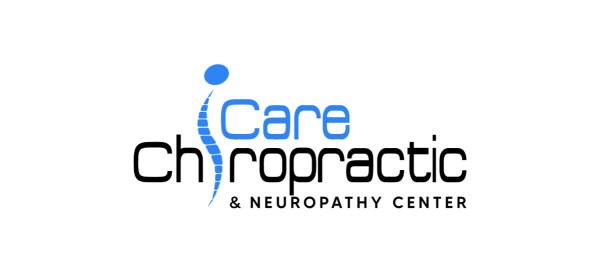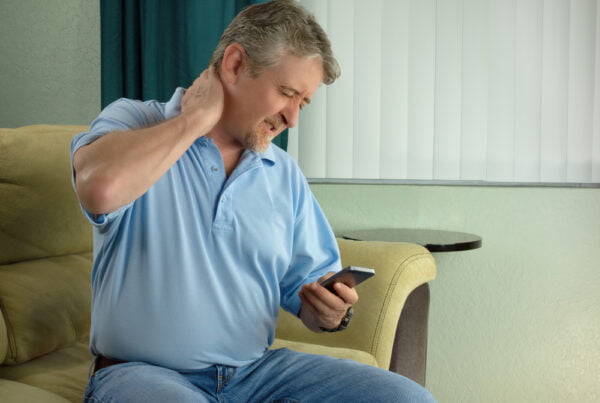How to Get Rid of a Stiff Neck
Working on computers and staring at our smartphones for hours each day has left 20% of us experiencing neck pain over the past three months. A stiff neck usually starts with postural issues that have weakened your neck muscles. Weakened muscular support places additional stress on your spinal joints. Over time, the extra stress can change how you move, increase the pressure on your spine discs, and cause pain.
Looking down at your computer or phone all day can cause the muscles that support your neck to become chronically tired. If you do this all day, the stress can add up and result in the joints of your neck not moving correctly. At this point, it’s only a matter of time before you wake up with a stiff neck or turn your head during the day and are greeted by intense muscle discomfort or pain. Here are three smart tips to get rid of a stiff neck:
Perform range of motion exercises each day to stretch and strengthen muscles that support your neck
Sleep on a supportive pillow that keeps your head in a neutral position throughout the night
Receive spinal adjustments to restore the proper motion and function of your spinal joints
A small adjustment can make big changes in your quality of life. Our team is here to help. iCare Chiropractic is focused on helping you feel (and function) better by improving your spinal motion and providing you with the stretches and exercises you can do at home to continue your improvement. If neck pain has got in the way of you enjoying your life, give us a call and schedule an appointment today.
Science Sources:
- Do you have a stiff neck? Try these simple remedies. Cleveland Clinic. 2015
- Intervertebral Kinematics of the Cervical Spine Before, During and After High Velocity Low Amplitude Manipulation.The Spine Journal. 2018
- Chiropractic Care for Arthritis. Arthritis Foundation. 2020
- Do you have a stiff neck? Try these simple remedies. Cleveland Clinic. 2015
- Osteoarthritis. University of Maryland Medical Center. 2007
- Outcomes from Magnetic Resonance Imaging-Confirmed Symptomatic Cervical Disk Herniation Patients Treated with High-Velocity, Low-Amplitude Spinal Manipulative Therapy. Journal of Manipulative and Physiological Therapeutics. October 2013





